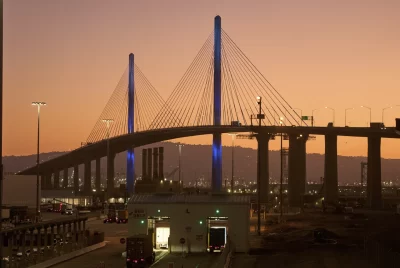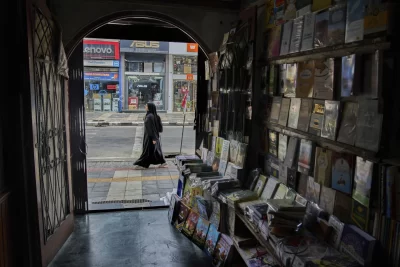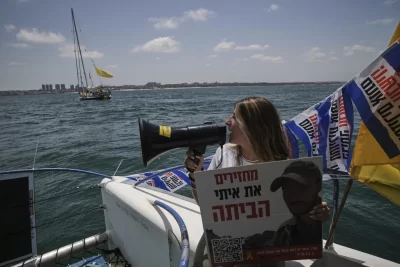
FRANKFURT, Germany — Fears are rising about what would happen to Europe’s energy supply if Russia were to invade Ukraine and then shut off natural gas exports in retaliation for U.S. and European sanctions.
The tensions show the risk of Europe’s reliance on Russia for energy, which supplies about a third of the continent’s natural gas. And Europe’s stockpile is already low. While the U.S. has pledged to help by boosting exports of liquefied natural gas, or LNG, there’s only so much it can produce at once.
It leaves Europe in a potential crisis, with its gas already sapped by a cold winter last year, a summer with little renewable energy generation and Russia delivering less than usual. Prices have skyrocketed, squeezing households and businesses.
No one knows for sure, but a complete shutoff is seen as unlikely, because it would be mutually destructive.
Russian officials have not signaled they would consider cutting supplies in the case of new sanctions. Moscow relies on energy exports, and though it just signed a gas deal with China, Europe is a key source of revenue.
Europe is likewise dependent on Russia, so any Western sanctions would likely avoid directly targeting Russian energy supplies.
More likely, experts say, would be Russia withholding gas sent through pipelines crossing Ukraine. Russia pumped 175 billion cubic meters of gas into Europe last year, nearly a quarter of it through those pipelines, according to S&P Global Platts. That would leave pipelines under the Baltic Sea and through Poland still operating.
“I think in the event of even a less severe Russian attack against Ukraine, the Russians are almost certain to cut off gas transiting Ukraine on the way to Germany,” said former U.S. diplomat Dan Fried, who as State Department coordinator for sanctions policy helped craft 2014 measures against Russia when it invaded and annexed Ukraine’s Crimea peninsula.
U.S. national security adviser Jake Sullivan said Sunday on NBC’s “Meet the Press” that the Biden administration has coordinated with its allies and that “if Russia invades Ukraine, one way or another, Nord Stream 2 will not move forward.”
Interrupting gas supplies beyond the Ukrainian pipelines is less likely: “If they push it too far, they’re going to make a breach with Europe irreparable, and they have to sell the oil and gas someplace,” Fried said.
It’s a major gas producer and already is sending record levels of liquefied natural gas, or LNG, by ship worldwide. It could only help Europe a little.
“We’re talking about small increases to the size of U.S. exports, whereas the hole that Europe would need to fill if Russia backed away or if Europe cut Russia off would be much larger than that,” said Ross Wyeno, lead analyst for Americas LNG at S&P.
The Biden administration has been talking with gas producers worldwide about whether they can boost output and ship to Europe, and it has been working to identify supplies of natural gas from North Africa, the Middle East, Asia and the U.S.
The administration also is talking with buyers about holding off.
“Is there some other country that was planning to get an LNG shipment that doesn’t need it and could give it to Europe?” said Amy Myers Jaffe, managing director of the Climate Policy Lab at Tufts University, mentioning Brazil or countries in Asia.
Over the past month, two-thirds of American LNG exports went to Europe. Some ships filled with LNG were heading to Asia but turned around to go to Europe because buyers there offered to pay higher prices, S&P said.







